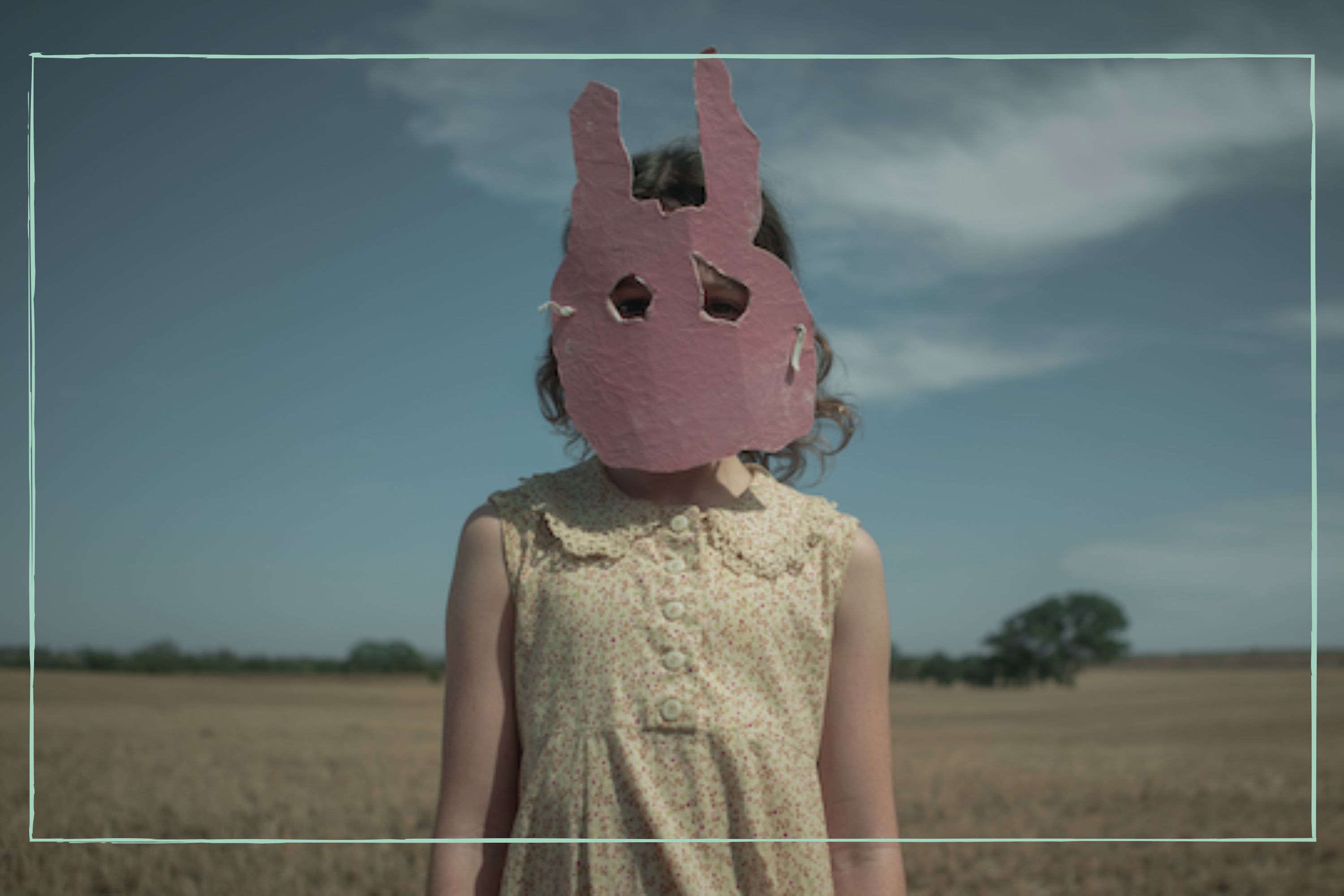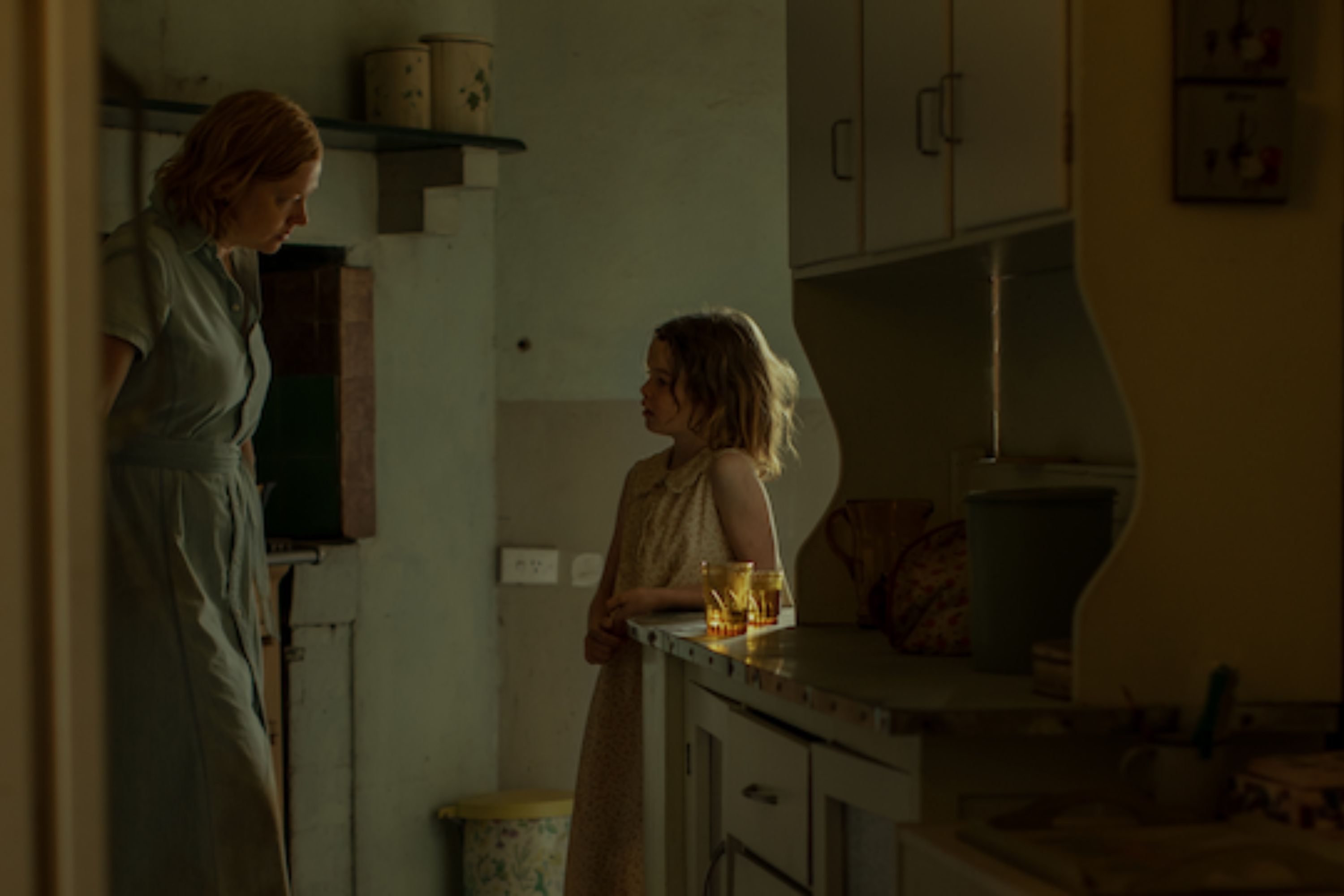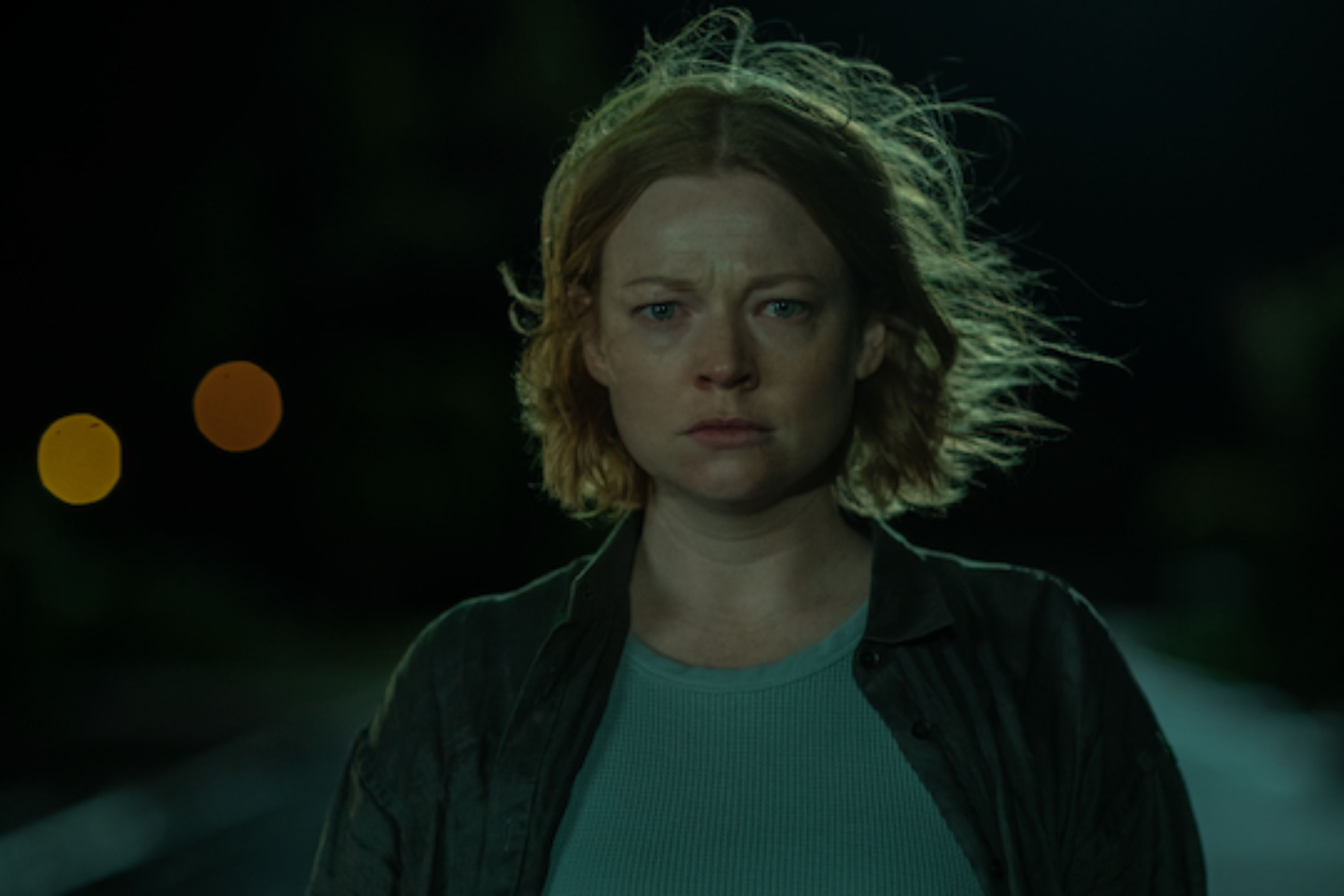
Run Rabbit Run ending explained: What exactly does that ambiguous ending mean? We are here to explain what happened in the Sarah Snook psychological horror.
Fresh from the back of Succession ending after four incredible seasons, Sarah Snook returned to TV in Run Rabbit Run. Her turn as single mother Sarah dealing with disturbing behaviour from daughter Mia, is a total departure from her role as the feisty Shiv in the glorious Succession. Mia becomes obsessed with a rabbit and begins to vehemently express that she isn't Mia but Alice - Sarah's sister who disappeared when she was Mia's age. This disturbing turn of events sees Sarah who is already harbouring years of trauma, fall in a downward spiral as she tries desperately to do what's right for her daughter. But the film's conclusion has left some viewers with questions, and we are here to break down exactly what that ending meant for Sarah and Mia.
The For Her Sins ending left viewers similarly confused, as the fellow psychological drama followed similar motherhood-related themes. Since it's arrival on Netflix, the Angela Black ending has intrigued fans, while shining a light on issues of domestic abuse.
Run Rabbit Run ending explained
At the end of Run Rabbit Run, viewers find out that Alice hadn't mysteriously disappeared, but had been killed by Sarah.
Mia remains insisting she's actually a reincarnated version of Alice, wanting to sleep in Alice's old bed at Sarah's childhood home. It transpires that as children Sarah and Alice had a difficult relationship, fighting frequently with Sarah apparently bullying her sister. Sarah suggests to Mia that she liked to play hide-and-seek with Alice, something Mia immediately refutes - she responds by maintaining the pretence of being Alice, telling Sarah Alice hated playing the game. She suggests Sarah used to force Alice to hide, lock her in cupboards and never actually try and find her. She finishes by saying "I hate you."
In a horrifying reveal, Alice died when Sarah hit her over the head with a rabbit trap. Fleeing the scene with a bleeding head, Sarah then chased her sister to a cliff edge and pushed her off. Sarah is next seen waking to find Mia missing, sparking a frantic search with ex-husband Pete. A lot of visual clues suggest Sarah has killed her daughter in the same way she killed her sister, until Mia is found safe and well. Sarah appears to have hallucinated a lot of the imagery leading her to believe she'd murdered Mia.
That evening, Sarah gives in and talks to Mia as though she's Alice. As Alice, Mia tells her mother she's a monster, something Sarah agrees with. Sarah falls asleep after this revelation, and the infamous rabbit returns, apparently leading Mia with it and out of the house. Sarah wakes to find her daughter missing, and Pete apparently smothered with a pillow and dead in the spare room - it remains unclear whether he is dead, and if it was Sarah that did it.
Looking out of the window to try and catch a glimpse of the missing Mia, Sarah's final moments show her daughter holding hands with Alice and walking towards the same cliff she once pushed her sister from. She bangs on the window trying to get her daughter's attention, to no avail. Viewers don't see what happens to Mia, as the film ends before her eventual fate is revealed.

What does the ending mean in Run Rabbit Run?
The ending is left deliberately ambiguous, for viewers to decide what happened to Mia. A lot of the film's imagery is also open to interpretation.
Sarah often imagined wounds on her daughter, similar to those she had inflicted on Alice when she was alive. These appear to be manifestations of the trauma she's lived with since she killed her sister, and lies she told their parents about what really happened - they lived their entire lives believing Alice simply disappeared.
Disturbing drawings that viewers were led to believe Mia had drawn in a sketchbook, were actually drawn by Sarah. Many of the psychological disturbances Sarah experiences could all be completely imagined, depicting a woman spiralling into a mental health black hole, after years of mental distress.
The rabbit could also be entirely imagined - Alice had a love of animals, and was passionate about bringing strays home to look after them. As Mia's troubles began when a stray rabbit entered their home, this could also symbolise further hallucinations on the part of Sarah, or that a supernatural force was at work and Alice really had come back in some way to befriend Mia.
Mia's possible death goes the same way - there is no way to know whether Sarah was imagining her daughter walking towards the cliff with her dead sister, as a further manifestation of her guilt. When she previously believed her daughter was dead and she'd killed her, Mia was later found safe and well - this could have been the case once more; Mia and Pete dying could all be part of a psychological breakdown. Something the film does very well is to drop many clues and leave the viewer to interpret them however they choose.

Run Rabbit Run: Cast
- Sarah Snook (Succession, Black Mirror) as Sarah
- Lily LaTorre (The Clearing) as Mia
- Damon Herriman (Mindhunter, Once Upon A Time In Hollywood) as Peter
- Greta Scacchi (War & Peace, The Terror) as Joan
- Neil Melville (The Leftovers, Lie With Me) as Albert
- Naomi Rukavina (Newton's Law, Wentworth Prison) as Denise)
- Sunny Whelan as Alice
In an interview with Screen Australia, Director Daina Reid spoke about her motivations for bringing the story to life, and what it was like to work with Sarah Snook. She said "To become a parent is a really confronting thing. You're really vulnerable and I wanted to explore that idea of the vulnerability of a parent."
She continued "I also wanted to explore the fear of infecting your child with your own stuff. That you have a child and think 'I haven't fixed myself, I haven't done the work' and you are inadvertently transferring that onto your innocent vulnerable thing. And that's one of my greatest fears."
On working with Snook, she added "It was incredible working with Sarah Snook, because she's the most incredible actor; so insightful, almost to the point where it's a little bit like magic. She would get everything in one take, and I would do other takes just to be polite. She was so extraordinary."
Run Rabbit Run: Reviews
There has been a mixed response to Run Rabbit Run, with the critics not appearing to appreciate the film at all.
Michael Sun from the Guardian offered two stars. He said "If cinema can telegraph national identity, then Australia needs to go to therapy immediately. Into this lineage comes director Daina Reid’s Run Rabbit Run, an Australian mummy horror so indebted to its forebears that it feels derivative by default. The cliches fly thick and fast: a squall of wind in the distance, a barren landscape striated by naked branches, ghoulish dreams awash with eldritch images. And that’s just the first five minutes."
Clarisse Loughrey from the Independent also offered two stars. She said "Snook, back in her native Australian accent, occasionally elevates the material. The dissonance between what she says and what her eyes betray suggested duplicitousness in Succession; here it reads as pure tragedy. When she starts tearing up the place, in a way that’s reminiscent of Roman Polanski’s Repulsion, she never lets those hysterics extend beyond believability. But there are only so many ways a woman can react to a child’s precocious head tilt, moments before they utter something wise and morbid beyond their years. Run Rabbit Run has Snook running in circles."
Some audience members however, had positive things to say - one wrote "Excellent film. Part horror, part suspense, part thriller. Eerie and sophisticated. Ending was a stunning surprise. Absolutely worth the watch."
Another added "I watch a lot of horror movies, and I thought this was a good b horror movie. It's not meant to be earning awards or something. I thought it was well-directed, kept up a creepy vibe. I thought the area wherever they were in Australia was really pretty, but creepy at the same time. They revealed the story slowly enough so that I didn't guess the entire twist straight from the beginning. Sarah snook and the girl did a great job, I think this is a decent movie, and I think it's too bad critics and audiences are both bagging on it so much."
Elsewhere on Netflix, people are asking if there will be a season 2 of Glamorous - we've looked at what the audience wants and gathered some potential evidence. Similarly, viewers are interested in the cast of Fake Profile, as the surprise steamy hit has fans hooked. BBC drama Come Home has arrived on the streamer, piquing a global interest in where it's filmed - we reveal all.







